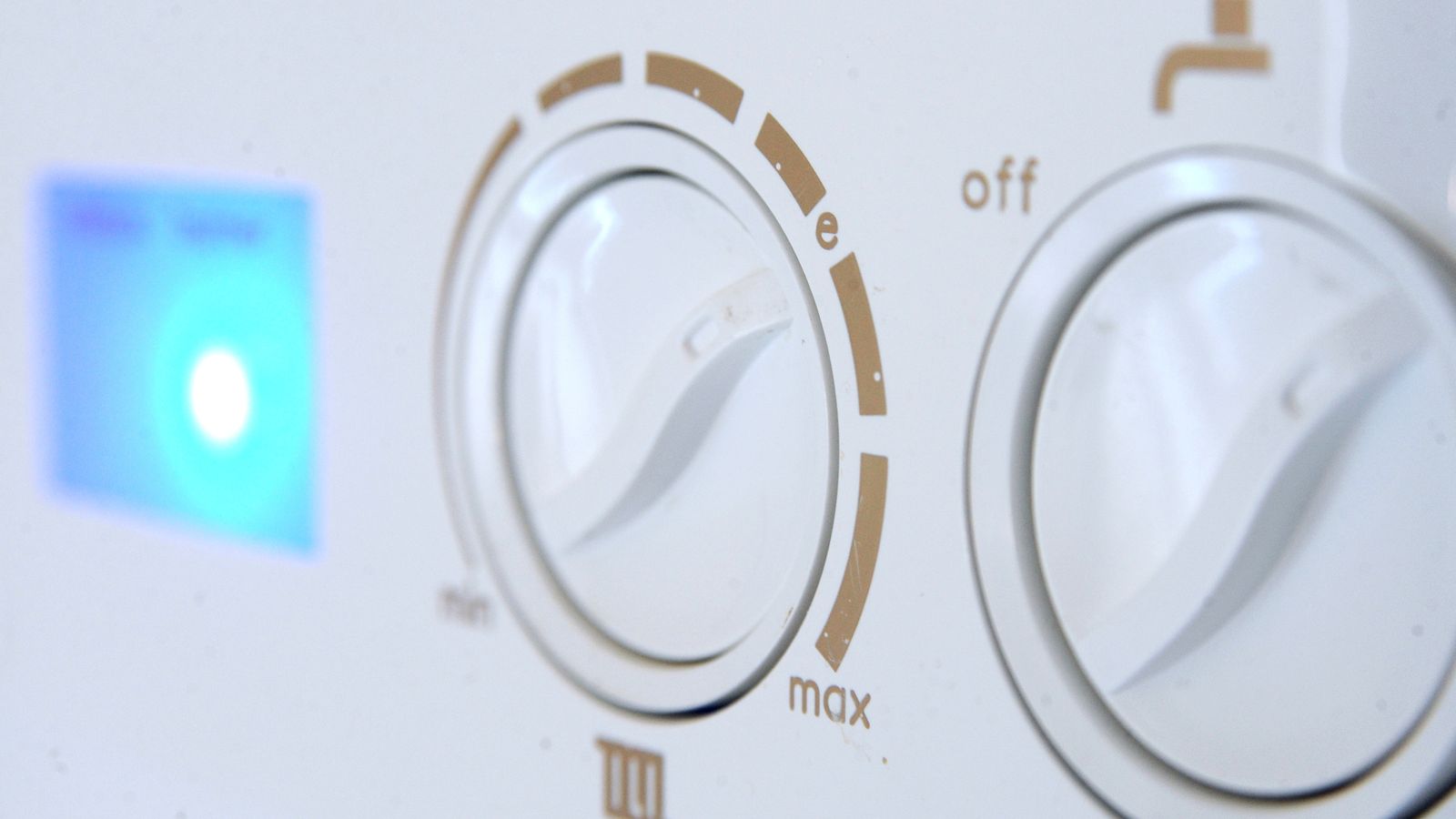Some of the UK’s biggest energy companies could be offered state-backed loans in return for taking on customers from smaller suppliers if they go under, as soaring global gas prices throw the industry into crisis, the business secretary has told Sky News.
Speaking to Kay Burley, Kwasi Kwarteng also said that the carbon dioxide shortage that has affected some food and drink production could be solved by the end of the week.
Questioned about the energy crisis, Mr Kwarteng said there are “lots of options” at the disposal of ministers.
Please use Chrome browser for a more accessible video player
“It costs a company to absorb up to hundreds of thousands of customers from another company that’s failed, that costs money, and there may well be a provision for some sort of loan and that’s been discussed,” he said.
But the business secretary stressed he did not want to be “throwing taxpayers’ money” at companies which have been “badly run”.
“Every year between five and eight companies exit the market and I don’t want to prop up failing companies, I don’t want there to be a reward for failure,” he added.
Mr Kwarteng insisted it was a “myth” that the UK supply of gas could run out and stressed “security of supply is not an issue”.
Energy crisis: UK’s ‘particularly difficult’ circumstances mean it’s suffering worse than European neighbours
Why is a rise in gas prices pushing up electricity costs? Energy crisis in four charts
Energy crisis: Why gas prices have soared and left UK facing prospect of food shortages
He acknowledged some people may already struggle to heat their homes because of the cost of their energy bills, but said it would not be down to a lack of supply.
Speaking in the Commons on Monday, Mr Kwarteng said there is “absolutely no question of the lights going out this winter”.
Please use Chrome browser for a more accessible video player
He also told MPs that the energy price cap will remain in place.
Wholesale prices for gas have increased 250% since the start of the year and there has been a 70% rise since August.
Consumers are protected from sudden price hikes by the energy price cap, but this puts pressure on suppliers as they cannot pass on the increase in wholesale gas prices to customers.
The rise has been put down to a number of factors, including a cold winter leaving stocks depleted, high demand for liquefied natural gas from Asia and a drop in supplies from Russia.
Four small UK firms have already gone bust and there are fears that others could follow suit, with energy company Bulb, which has 1.7 million customers, confirming it is seeking a bailout to stay afloat.
If a supplier fails, Ofgem will ensure customers’ gas and electricity supply continues uninterrupted.
Customers will be switched to a “supplier of last resort” and any credit with the old supplier will be transferred.
If a supplier of last resort is not possible, a special administrator would be appointed by Ofgem and the government.
Your old tariff will end and the new supplier will put you on a special “deemed” contract, which will last for as long as you want it to.
The deemed contract could cost you more, as the new supplier takes on more risk (for example, possibly having to buy extra wholesale energy at short notice to supply to the new customers), but Ofgem says it will try to get the best deal for you.
You should take meter readings as you will need to pass these on to your new supplier.
Once your new supplier has been in touch, ask them to put you on their cheapest deal. Then shop around and switch if you want to. You won’t be charged exit fees.
Turning to the issues with CO2 production, the business secretary sounded a confident note.
He said a resolution to the issues experienced was “pretty imminent” and added: “I’m very confident and hopeful that we can sort it out by the end of the week.”
“I think we have to have a diversity of sources of carbon dioxide there,” Mr Kwarteng continued.
“CF [a US company that provides 60% of Britain’s carbon dioxide and has stopped operations at two plants here] isn’t the only company that manufactures carbon dioxide.
“They have a big share of market, I said they weren’t the only one. But they are… a big part of the carbon dioxide market.”






















